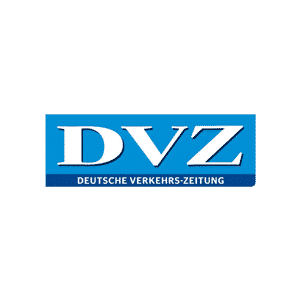UPDATE: 23.04.2020
The services of the European Commission have updated the information on the temporary relaxation of driving and rest periods. Further information can also be found in the relevant section of the EC website here.
Source: European Commission, DG MOVE
UPDATE: 12.04.2020
The services of the European Commission have just disseminated a Communication advising EU Member States on how to deal with driver cards in the current exceptional circumstances of COVID-19, where delays in issuing or replacing driver cards are expected.
The EC recognises that there is no legal basis in EU legislation, as contained in Regulation (EC) No 561/2006, Directive 2002/15/EC and Regulation (EU) No 165/2014 (the Tachograph Regulation), to empower the Commission to grant a derogation from the time limits contained in the legislation to deal with exceptional circumstances. However, in its capacity as guardian of the Treaties, the Commission is entitled to take account of exceptional circumstances to which the Member States are exposed during the current crisis.
The Commission services therefore propose the approach set out below, provided that the measures adopted by the EU Member States are limited both in substance and in time to what is necessary in view of the current crisis.
– The national competent authorities should endeavour to issue a new card as soon as possible after receiving a detailed application to this effect. Under this approach, a period of 45 days after receipt of the application could be considered reasonable in the current circumstances.
– National enforcement authorities should, when monitoring compliance with the tachograph Regulation, take into account the current exceptional circumstances in so far as the driver has fulfilled his obligations.
With regard to expired cards, the EC proposes the following approach:
– The obligations set out in paragraph 1 (obligation to apply for renewal 15 working days before the card expires) and paragraph 2 (provisions for the case of renewals where the Member State of normal residence of the driver is different from the one which issued his current card) of Article 28 of the Tachograph Regulation apply. The submission of an online application is recommended and should always be preferred where available.
– Without prejudice to the need for Member States to ensure that the relevant periods and events are properly recorded, the driver should always be in possession of the expired card and should present it when requested by the control authorities.
– The driver should keep evidence of the application for replacement of the expired card for the competent national authorities and present it to the control authorities on request.
Source: European Commission
UPDATE: 11.04.2020
Following many questions related to customs procedures during the COVID 19 crisis, the European Commission, DG TAXUD, launched a website with guidance for economic operators on various customs issues. This information is regularly updated and should therefore be consulted regularly.
The guide covers aspects related to customs decisions, procedures and formalities. They deal with questions concerning the use of NCTS and TIR, such as
– qualification of customs representatives for electronic commerce
– Priority setting for essential customs decisions
– Flexibility for customs debts and customs guarantees
– Entry, transit and exit of goods
– Customs and special customs procedures.
Source: European Commission, DG TAXUD
UPDATE: 09.04.2020
In view of the various forthcoming public holidays, such as Easter, you will find below the updated decisions taken by the national authorities of the following countries with regard to road transport For details of the regulations normally applicable to each country, please consult the IRU Information Centre.
– Austria – On 6 April 2020 the AISÖ confirmed that the weekend and holiday driving ban for trucks over 7.5 tonnes will be suspended in Austria until 19 April 2020. However, members should be aware that the sectoral driving bans currently in force in the Tyrol region will remain in force.
– Czech Republic – the existing driving bans on Sundays and public holidays will be lifted during the period of national emergency.
– France – the current driving bans on weekends and public holidays will be lifted by 20 April (for more information on normal driving bans, click here).
– Germany – the exemptions of the German federal states for driving bans concern both Sunday and public holiday driving bans. The exemptions granted in the federal states can be found here.
– Greece – The Greek Ministry of Infrastructure and Transport decided on 31 March to suspend the driving bans for heavy goods vehicles from 16 April to 21 April (Orthodox Easter). The suspension also applies from 30 April to 3 May (Labour Day weekend).
– Italy – The Italian Minister for Transport and Infrastructure signed a decree lifting the domestic traffic bans on lorries over 7.5 tonnes from 10th to 14th April. Until further notice, the holiday traffic bans on vehicles carrying out international transport in Italy will also be lifted.
– Portugal – During the Easter period, professional drivers must have a declaration signed by their employer confirming that the driver is carrying out a transport service. The declaration aims to prevent unnecessary movement of people during this Easter period. The form can be downloaded here. The obligation to carry such a document comes into force on 9 April at 00:00 until 13 April at 00:00. During this period, the free movement of persons will only be allowed for professional reasons (including drivers in freight transport) or for special needs (to go to a hospital or pharmacy or to buy food).
– Romania – On 4th April the National Road Infrastructure Management Company (CNAIR) lifted driving restrictions for vehicles over 7.5 tonnes on the Ploiesti-Brasov section of the DN1 (E60) national road. The measure is valid until 16 April. The driving restrictions on the Bucharest-Ploiesti section of the DN1 national road remain in force.
– Spain – The following restrictions are suspended for the entire duration of the state of emergency:
– Weekly driving bans for vehicles over 7.5 tons
– Weekend and holiday driving bans for ADR vehicles
– Weekly, fixed and weekend driving bans for abnormal transport
– All driving bans for transport vehicles in Catalonia and the Basque Country.
– Slovakia – The Slovakian police lifted the driving bans for lorries over 3.5 tonnes on 10, 12 and 13 April (please note that there are no driving bans on Saturday).
Source: IRU members
UPDATE: 07.04.2020
DG MOVE issues guidelines for the renewal of certain licences and certificates for professional drivers in the EU.
Following the letter from the Director General of DG MOVE to the EU Member States asking them to notify the European Commission (EC) services via a single e-mail address, EU-COVID-TRANSPORT@ec.europa.eu, of their national measures relating to the COVID-19 emergency extension of the validity of licences and certificates for individuals and professional drivers and workers (Flash info published on 27 March), the EC has now published a specific annex with a list of these certificates. For road transport the following main control documents are listed:
– Periodic training of drivers to obtain the certificates of professional competence (certificate of professional competence), as provided for in Article 8 of Directive 2003/59/EC
– driving licences with a view to their renewal or, in some cases, exchange, as provided for in Article 7 of Directive 2006/126/EC;
– Dangerous goods covered by Directive 2008/68/EC, including, inter alia, the renewal of certificates of training of drivers for the transport of dangerous goods and the renewal of certificates of safety advisers for dangerous goods;
– inspection of the tachograph, as required by Article 23 of Regulation 165/2014
– periodic roadworthiness tests of motor vehicles and their trailers, as required by Article 5 of Directive 2014/45/EU;
– renewal of Community licences in accordance with Article 6 of Regulation (EC) No 1072/20097 and Article 4 of Regulation 1073/20098;
– renewal of the authorisation to provide regular services by coach and bus in accordance with Article 9 of Regulation 1073/2009; renewal of the Community licence in accordance with Article 6 of Regulation (EC) No 1072/20097 and Article 4 of Regulation 1073/20098; renewal of the authorisation to provide regular services by coach and bus in accordance with Article 9 of Regulation 1073/2009
– renewal of the driver attestation issued in accordance with Article 5 of Regulation (EC) No 1072/2009; and
– Renewal of the certificate of professional competence for drivers engaged in the transport of live animals as provided for in Article 17 of Regulation (EC) No 1/20059.
In order to ensure that national authorities are informed of the specific measures taken by other Member States and to exercise tolerance, the EC will publish the national information on its coronavirus transport platform at https://ec.europa.eu/transport/coronavirus-response_en.
Source: European Commission
UPDATE: 06.04.2020
shipments of waste related to the coronavirus crisis (COVID-19).
On 30 March 2020, the European Commission issued some specific guidelines to ensure the continuation of national and cross-border shipments of waste in the EU. The guidelines indicate that the Green Lanes apply mutatis mutandis to shipments of waste and call on Member States to implement this principle.
They also call for an end to the treatment of paper documents and a move to digital document exchange, especially in cases of notifications relating to shipments.
Finally, more flexibility is recommended in cases where there are changes in routing that do not affect any Member State that was not included in the original route.
Source: European Commission, DG Environment
UPDATE: 04.04.2020
European Commission publishes guidelines on the exercise of free movement of workers during the outbreak of coronavirus (COVID-19)
In addition to its communications on border management and green lanes, the European Commission has now issued another communication (see text in all official EU languages) which clarifies the conditions for the free movement of workers (including transport workers) within the European Union during the outbreak of the coronavirus (COVID-19). These specific guidelines, which cover a wider sector of workers, clarify and complement the provisions for workers in international transport as set out in the Communication on Green Roads and are without prejudice to workers in transport. Member States are also invited to treat self-employed workers in the same way in any of the critical occupational areas listed in these guidelines.
The professions listed are as follows:
– health professionals, including paramedical professions;
– personal care workers in the health sector, including care workers for children, people with disabilities and the elderly;
– researchers in health-related sectors;
– employees in the pharmaceutical and medical technology industries;
– workers involved in the supply of goods, in particular for the supply chain of pharmaceuticals, medical supplies, medical devices and personal protective equipment, including their installation and maintenance
– information and communication technology professionals;
– information and communication technicians and other technicians involved in the essential maintenance of equipment;
– engineering professionals such as energy technicians, engineers and electrical engineers;
– persons working on critical or otherwise essential infrastructures;
– members of the scientific and technical community (including water systems technicians);
– employees of protection services;
– firefighters, police officers, prison guards, security guards and civil defence personnel;
– food production and processing and related occupations and maintenance workers;
– food (and related products) machine operators (including food production operators);
– in particular transport workers (as in the Green Lanes Communication and the letter from the Director-General of DG MOVE – IRU note):
(a) drivers of cars, vans and motorcycles, drivers of heavy goods vehicles and buses (including bus and tram drivers) and drivers of ambulances (including drivers transporting assistance offered under the Union Civil Protection Mechanism and drivers taking repatriated EU citizens from another Member State to their place of origin or destination)
(b) pilots of airlines;
(c) train drivers, wagon masters, maintenance workshop staff and staff of infrastructure managers involved in traffic management and capacity allocation
(d) maritime and inland waterway personnel;
– fishermen;
– staff of public bodies, including international organisations in critical positions.
The Commission urges the Member States to introduce specific, light and fast procedures for border crossings with a regular flow of border workers and posted workers in order to guarantee them a smooth crossing. This could be done, for example, and where appropriate, by providing special lanes at the border for such workers or by providing lanes with special stickers recognised by neighbouring Member States.
Health checks for frontier workers and posted workers must be carried out under the same conditions as for nationals of the same professions. Health checks may be carried out before or after the border, depending on the infrastructure available, in order to ensure that traffic flows smoothly. Member States should coordinate among themselves in order to carry out health checks on one side of the border only, in order to avoid overlapping and waiting times. The checks and health examinations should not result in workers having to leave the vehicles and should in principle be based on the electronic measurement of body temperature. Temperature checks on workers should not be carried out more than three times a day.
For transport workers referred to in paragraph 19 of the Communication on Green Lane Systems, the specific preventive health measures set out in these guidelines apply.
The Commission urges the Member States to introduce specific procedures to ensure the smooth passage of these workers and to use the Technical Committee on the Free Movement of Workers to identify best practices that can be extended to all Member States so that these workers can exercise their profession without hindrance.
Source: European Commission
UPDATE: 30.03.2020
The European Commission’s latest key communication on green lanes is now available here in all official EU languages.
Please note that EU leaders also expressed their support for green lanes in their last declaration (26 March) with the following statement: “Where temporary internal border controls have been put in place, we will ensure smooth border management for people and goods and maintain the functioning of the internal market on the basis of the Commission guidelines of 16 March 2020 in accordance with the Schengen Borders Code and the Commission guidelines for the implementation of “green lanes”.
This confirms that the implementation of green lanes is a common commitment of all EU Member States.
Source: IRU
UPDATE: 28.03.2020
According to the information exchanged between IRU members, the vast majority of EU Member States allow double manning, with a crew of two drivers (Article 4, paragraph o)) of Regulation 561/2006.
In France, Italy, Spain and Portugal, special rules apply, whereby a social distance of 1 metre must be respected.
In the case of the United Kingdom, double manning is not prohibited, provided the following conditions are met:
– Minimisation of contact with colleagues and clients. The minimum contact is a combination of time and distance.
– If close contact is not required, a distance of at least two metres should be maintained.
– Regular hand hygiene either by formal hand washing (best) or alcohol gel (good) is important.
– Do not bring your hands to your face / head (e.g. to blow your nose) unless you have just washed / gelled your hands.
– Dispose of the tissue used for blowing your nose and wash/gelatinize your hands before further action.
– When using gloves, change them in case of physical damage or visible contamination or in case of physical injury or when it is necessary for the comfort of the operator.
– If you use PPE, make sure that these (e.g. gloves and/or aprons) are safely removed and disposed of after completion of work – this is the most important step.
The information on the United Kingdom is based on the advice in force at the time of writing this article, but is subject to change.
At this stage, the IRU does not recommend the use of double occupancy in Hungary.
The IRU will continue to monitor the situation and inform Members of any changes.
Source: IRU and exchanges with IRU members
UPDATE: 27.03.2020
On 26 March, the Director-General of DG MOVE, Henrik Hololei, sent a letter to EU Member States inviting them to notify the European Commission (EC) of their national measures concerning COVID-19-related emergency extension of the validity of licences and certificates issued to individuals and professional transport operators and workers (via a single e-mail address EU-COVID-TRANSPORT@ec.europa.eu). It also called on national authorities to take this information into account in the enforcement of relevant legislation, in particular with regard to professional drivers and workers engaged in international activities.
The information provided by EC Member States should include at least the following information:
– the relevant EU (or national) legislation and specific provisions
– A brief description of the measure
– The envisaged duration of the extension (date, from-to)
To ensure that national authorities are informed of exceptional measures taken by other Member States, the EC will publish the national information on its Coronavirus transport platform.
Please note that this is a first general statement, where “specific legal requirements (EC or national) that may be affected by this situation will be identified and communicated as soon as possible”. The services of DG MOVE are currently working on this list, including for road transport, and intend to publish it as soon as possible. A specific IRU Flash Info will follow immediately.
Source: European Commission
UPDATE: 22.03.2020
The International Road Transport Union (IRU) has made some clarifications on exemptions from driving and resting time rules granted by different EU Member States – Regulation (EC) No 561/2006:
A number of EU Member States have granted temporary derogations from the driving and rest period rules in accordance with the provisions of Article 14(2) of Regulation (EC) No 561/2006.
The latest official information from the European Commission can be found on its dedicated website https://ec.europa.eu/transport/modes/road/social_provisions/driving_time_en under “COVID-19 – Temporary relaxation of driving time rules”.
After several discussions among experts and with the services of the European Commission, the following clarifications can be made:
– If these derogations are granted by EU Member States for international transport (in most cases, but not all), they apply to all drivers of EU registered companies on the territory of the EU Member State concerned;
– The enforcement authorities of the different EU Member States have been and will continue to be informed of the various temporary exemptions introduced by the EU Member States so that they can take them into account when checking drivers at the roadside;
– The services of the European Commission have formally sent the list of exemptions to the UNECE Secretariat with the aim of also informing the competent authorities of the non-EU AETR Contracting Parties of these exemptions so that they may be taken into account when EU drivers are subsequently checked in the territories of the non-EU AETR Contracting Parties;
– As a rule, the exemptions of these EU Member States under EU Regulation (EC) No 561/2006 do not apply to drivers of undertakings registered in AETR contracting parties that are not EU members. One EU Member State (Poland) has formally and explicitly stated that the exemptions granted on Polish territory do not apply to drivers from AETR contracting parties that are not EU members. We therefore strongly recommend drivers from AETR contracting parties who are not members of the EU to comply with the rules of the AETR agreement.
– In exceptional cases, such as those currently encountered on the road and at borders, and in accordance with the provisions of Article 9 of the AETR Agreement, drivers from AETR contracting parties who are not EU members may be “… may depart from the provisions of this Agreement to the extent necessary to ensure the safety of persons, the vehicle or its load. Drivers shall indicate the nature of and the reason for their derogation from these provisions on the record sheet of the recording equipment or in their duty roster”.
– The IRU is in almost constant contact with the services of the European Commission and the representative organisations of enforcement authorities in Europe to discuss, debate and advise on these issues.
*** Translated with www.DeepL.com/Translator (free version) ***
UPDATE: 20.03.2020
The services of the European Commission have made available on its website a special section COVID-19 Temporary relaxation of driving time rules, which provides summary information on the various derogations on driving and rest periods introduced by the EU Member States. It is expected that this section will be regularly updated. The table is available here: “COVID-19 – Temporary relaxation of drivers’ hours rules“.
Source: European Commission
UPDATE: 17.03.2020
Border checks have been installed in the vast majority of the countries, which may from time to time lead to congestions on the border crossing points resulting in delays of transports with also possible impact on the End-to-End performance.
UPDATE: 16.03.2020
Over the past weekend, border checks have been installed in the vast majority of the countries, which may from time to time lead to congestions on the border crossing points resulting in delays of transports with also possible impact on the End-to-End performance.








